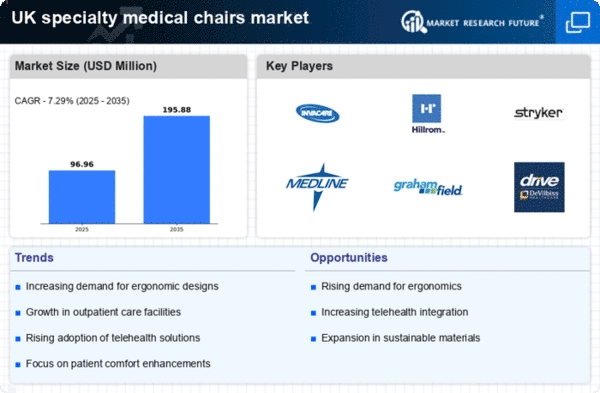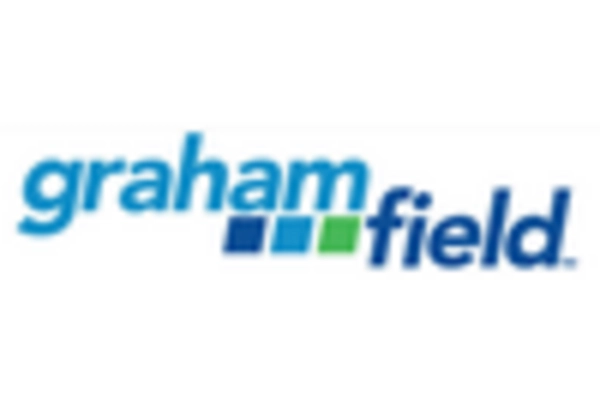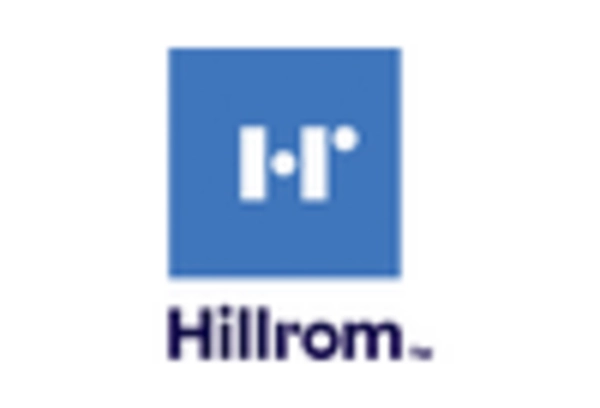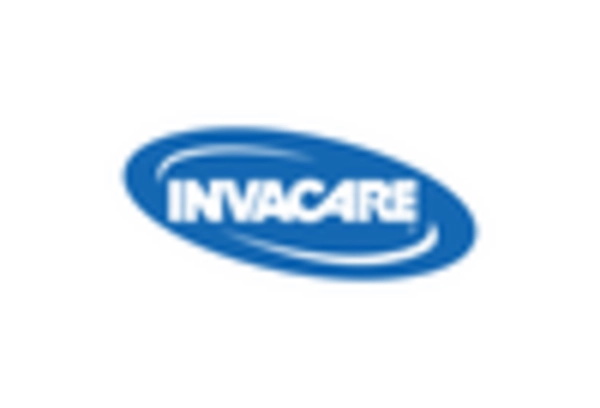Focus on Patient-Centric Care
The shift towards patient-centric care is significantly influencing the specialty medical-chairs market. Healthcare providers are increasingly prioritizing patient comfort and satisfaction, recognizing that these factors can lead to better health outcomes. This focus is prompting investments in specialty medical chairs that offer enhanced ergonomics, adjustability, and support features. As a result, the market is witnessing a surge in demand for chairs that not only meet clinical requirements but also provide a comfortable and supportive environment for patients. This trend is expected to continue, with patient-centric design becoming a fundamental aspect of product development in the specialty medical-chairs market.
Increasing Demand for Customization
The specialty medical-chairs market is experiencing a notable shift towards customization, driven by the diverse needs of healthcare providers. As patient demographics evolve, there is a growing demand for chairs that cater to specific medical conditions and individual preferences. This trend is reflected in the market, where customized solutions are projected to account for approximately 30% of total sales by 2026. Healthcare facilities are increasingly investing in tailored seating solutions to enhance patient comfort and satisfaction, which in turn may lead to improved clinical outcomes. The emphasis on personalization in the specialty medical-chairs market is likely to continue, as providers seek to differentiate their services and improve patient experiences.
Technological Advancements in Healthcare
Technological advancements are playing a pivotal role in shaping the specialty medical-chairs market. Innovations such as smart chairs equipped with sensors and connectivity features are becoming increasingly prevalent. These technologies enable healthcare providers to monitor patient conditions in real-time and enhance the overall patient experience. The integration of technology into specialty medical chairs is expected to grow, with projections indicating a market expansion of around 25% in the next five years. As healthcare facilities seek to improve operational efficiency and patient care, the adoption of technologically advanced seating solutions is likely to become a key driver in the specialty medical-chairs market.
Regulatory Compliance and Safety Standards
The specialty medical-chairs market is heavily influenced by stringent regulatory compliance and safety standards set forth by health authorities in the UK. Manufacturers are required to adhere to specific guidelines to ensure that their products meet safety and efficacy criteria. This regulatory landscape is evolving, with new standards being introduced to address emerging healthcare challenges. Compliance with these regulations not only ensures patient safety but also enhances the credibility of manufacturers in the specialty medical-chairs market. As a result, companies are likely to invest in research and development to align their products with these standards, which may lead to innovation and improved product offerings.
Aging Population and Increased Healthcare Needs
The aging population in the UK is significantly impacting the specialty medical-chairs market. As the demographic shifts, there is a corresponding rise in healthcare needs, particularly for elderly patients who often require specialized seating solutions. It is estimated that by 2030, individuals aged 65 and over will represent nearly 20% of the UK population. This demographic trend is likely to drive demand for specialty medical chairs designed for comfort, accessibility, and support. Healthcare providers are increasingly recognizing the importance of investing in appropriate seating to cater to this growing segment, thereby enhancing the overall quality of care in the specialty medical-chairs market.

















